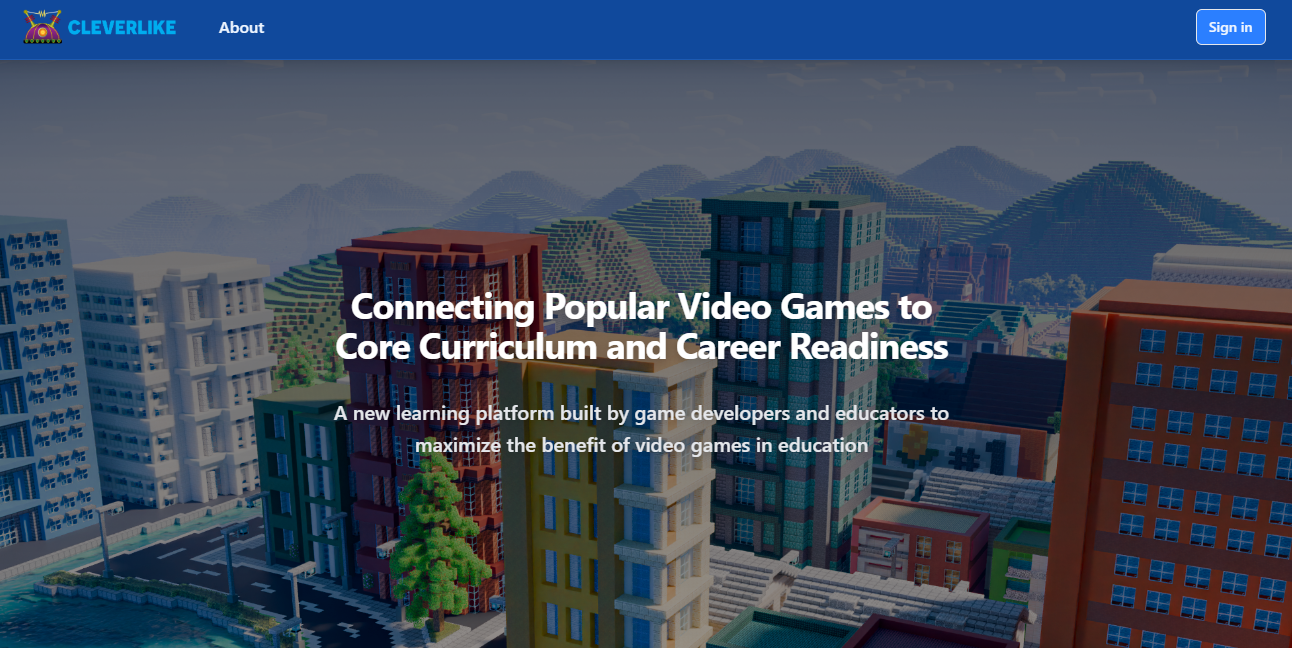NASEF Farmcraft®: Land Demand
NASEF Farmcraft® is a global outreach and educational program that uses the popular game Minecraft to enhance understanding of global agricultural challenges. It can be integrated into class curriculum or afterschool programs for students age 8-18.
This season of Farmcraft, called Land Demand, is focused on learning to weigh different factors in farming and understand the tradeoffs between environmental sustainability, economic prosperity, and food security. In this year’s Land Demand challenges, participants will learn about non-food uses for crops and explore how to balance those while also addressing food security needs. They will play Farmcraft with a goal of providing residents with specified targets of food, clothing, and shelter in a certain amount of time.
TEAM GUIDEBuild Challenges in the Cleverlike School LMS
Access challenge guides and follow the onboarding information to get started in the Cleverlike School LMS.
Access Farmcraft in Cleverlike School LMS
Challenge Guides (PDF)
Prefer an offline or printable version? Download the challenge guides below. Each guide is available in English, Spanish, and French.

Build Challenge #1: The "What" and "Why" of Crops
Get the details of Build Challenge #1 by downloading the PDF's below.
CHALLENGE GUIDE CHALLENGE GUIDE - SPANISH CHALLENGE GUIDE - FRENCH
Launch Stream & Build Challenge #1 Live Stream

Build Challenge #2: Growing into Your Clothes
Get the details of Build Challenge #1 by downloading the PDF's below.
CHALLENGE GUIDE CHALLENGE GUIDE - SPANISH CHALLENGE GUIDE - FRENCH
Build Challenge #2 Live Stream
Timeline of events

Registration
January 20, 2026 - April 3, 2026

Live Streams
February 4, 18
March 4, 18
April 1, 15, 29

Build Challenges
February 9, 2026 - March 13, 2026

Regular Season
March 18, 2026 - April 24, 2026

All Challenges Due
April 24, 2026

Finals Stream
April 29, 2026
** All live streams will be at 9:00am PT / 10:00am MT / 11:00am CT / 12:00pm ET / 4:00pm GMT on the NASEF YouTube channel. **
Prizes
Win prizes for regular season challenges!

1st Place
Senior | Junior
Prize valued at USD $250

2nd Place
Senior | Junior
Prize valued at USD $200

3rd Place
Senior | Junior
Prize valued at USD $100

Random Draw
Five randomly drawn teams across all divisions that complete the criteria for the regular season will each receive a prize valued at USD $50, shared among team members.
Watch the previous streams of this season!
Launch Stream & Build Challenge #1
Build Challenge #2
Farmcraft Archives

Farmcraft 2024: Digital Harvest
In 2024, Farmcraft was focused on the impact of digital technology on agricultural productivity. Many of the agricultural productivity increases in the last few decades have directly resulted from the adaptation and adoption of digital technologies to farming!

Farmcraft 2023: Harvest Haul
In 2023, Farmcraft was focused on food trade and food security, asking the question “What happens to food once it leaves the farm?” Participants will learn about the choices that farmers must make before even planting their crops, thinking about which crops to grow, who will eat the crops, where the crops must be sent, and how to deliver those crops.

Farmcraft 2022: Field Yield
In 2022, Farmcraft was focused on applying and adapting agricultural production techniques to different unique environmental biomes, while considering environmental sustainability and biodiversity conservation.
